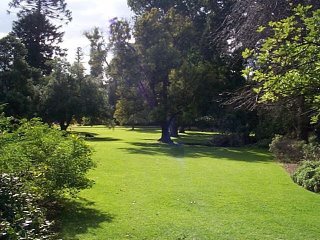 Simplify!
Simplify!In F W Boreham’s articles on William Blake he revealed that simplicity was an important strand in Boreham’s own thinking as it relates to seeing the value of ordinary things. He appeared to be echoing Henry D Thoreau’s chorus, “Simplify, simplify”,[1] and his frequent announcement of this theme was one of the indications of Boreham’s drift towards Quakerism.[2] He wrote of the despotic nature of possessions in which “the luxuries of one day become the indispensabilities of the next”, resulting in a blunting of one’s vision toward the greatest luxuries, which he contended were the least expensive.[3]
Leave Luxuries Behind
In conquering the “tyranny of disguise”, Boreham invited his readers to experience “the luxury of renouncing luxuries”, asking, “Is it not intensely significant that when we wholeheartedly abandon ourselves to the real pleasures of life, we leave our so-called luxuries behind us?” [4]These thoughts reveal the motivation for his abandonment of clutter indicated in such things as his determination not to drive a car, use a typewriter, install a telephone or watch television.
Benefits in the Turmoil
In Boreham’s judgement, one of the positive benefits of the international wars and the Depression was the way they brought an enforced renunciation of pleasure and a simplification of life. Writing about this revision of values, Boreham said: “In days like these, in which many of the ordinary commodities of life are rationed, and in which we are asked, for the sake of the starving millions of Europe, to curb our appetites and to impose upon ourselves a voluntary austerity, we learn with astonishment how many things we can do without”.[5]
Time for Overhaul
In a variety of editorials on this physical and mental overhaul, Boreham observed that the days of rationing and deprivation had resulted in people discovering “the inestimable value of a few simple and basic delights that are ordinarily overlooked”,[6] and the recognition that:
“Whatever losses we sustain, nothing can deprive us of the brightness of the daylight, the fragrance of gardens, the grace of velvety lawns, the glow of sunset, the love of good women, the laughter of little children, the loyalty of friendship, the companionship of books, the strains of stirring music, the beauty of noble paintings—the things that have represented the satisfactions of humanity since our little race began”.[7]
Geoff Pound
Image: ‘the grace of velvety lawns’.
[1] Henry D Thoreau, Walden, ed. J Lyndon Shanley (Princeton: Princeton University Press, 1971), 91.
[2] Rufus M Jones, The faith and practice of the Quakers (London: Methuen & Co Ltd, 1927), 90.
[3] F W Boreham, Mercury, 2 March 1957.
[4] Boreham, Mercury, 2 March 1957.
[5] Boreham, Mercury, 28 February 1917; Mercury, 7 September 1929; Mercury, 15 November 1941.
[6] Boreham, Mercury, 23 October 1943; Age, 6 April 1946.
[7] Boreham, Mercury, 17 May 1952.


